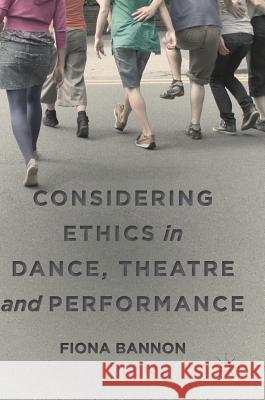Considering Ethics in Dance, Theatre and Performance » książka
topmenu
Considering Ethics in Dance, Theatre and Performance
ISBN-13: 9783319917306 / Angielski / Twarda / 2018 / 250 str.
Kategorie:
Kategorie BISAC:
Wydawca:
Palgrave MacMillan
Język:
Angielski
ISBN-13:
9783319917306
Rok wydania:
2018
Wydanie:
2018
Ilość stron:
250
Waga:
0.47 kg
Wymiary:
21.01 x 14.81 x 1.6
Oprawa:
Twarda
Wolumenów:
01
Dodatkowe informacje:
Wydanie ilustrowane











